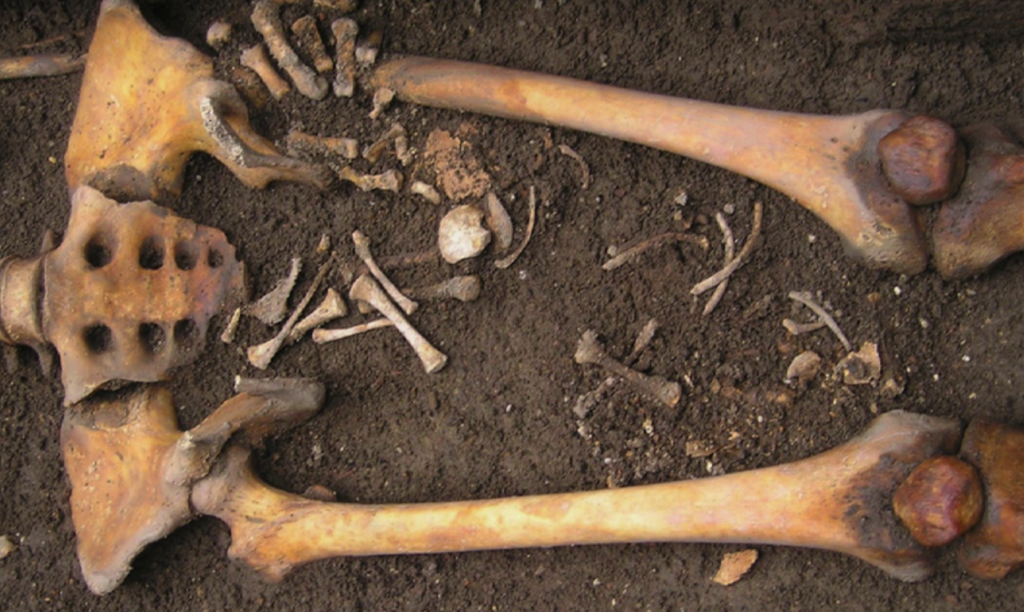
Italian archaeologists have uncovered a Medieval grave containing the remains of a woman and a fetus lying between her legs. It’s a grim example of a “coffin birth,” say the researchers, but there’s even more to this horrific Middle Ages tragedy than that.
The woman was 38 weeks pregnant when she was buried and the remains date back to 7th or 8th century AD. The Universities of Ferrara and Bologna’s researchers said:

“The duo can represent an unusual case of ‘coffin birth’ after having a closer look. They also said that the child’s leg bones possibly never made it out of the pelvic cavity, however, the upper torso and head likely did, as though the fetus was partially delivered.”
Based on the evidence, the researchers say the scene is an example of a “coffin birth,” or “post-mortem fetal extrusion.” This is a known, but rare, phenomenon that occurs during the decomposition phase. Around two to five days after the death of a pregnant individual, gas builds up inside the body, eventually forcing the fetus to be ejected from the vaginal canal, resulting in a post-mortem birth. Researchers say the fetus had already died when the mother was buried.
The hole in the woman’s skull measured 4.6 mm across, and it was located near a small incision on the forehead. The researchers say this is evidence of trepanation, an ancient form of brain surgery. The nature of the wound suggested surgical origin rather than a violent impact. The woman lived for about a week after the trepanation, as her skull exhibited the first signs of bone healing.

The suggestion that Medieval doctors performed a primitive form of brain surgery on a woman who was 38 weeks pregnant may seem wholly bizarre, if not completely inappropriate, but the researchers have a very plausible explanation: The trepanation was done to treat the woman’s eclampsia—a hypertensive pregnancy disorder. This condition, characterized by high blood pressure and protein in the urine, is a more severe form of preeclampsia. Eclampsia affects women after the twentieth week of pregnancy, and it’s one of the (still to this day) most common pregnancy-related disease, and the leading cause of maternal deaths.
while coffin births are exceptionally rare in the archaeological record. The causes of death could not be determined; the woman may have died as a result of the brain surgery, the eclampsia, or complications that arose during childbirth.
Also Read: Shocking..!! This Nita Ambani’s saree is a most expensive saree in the world

Post Your Comments